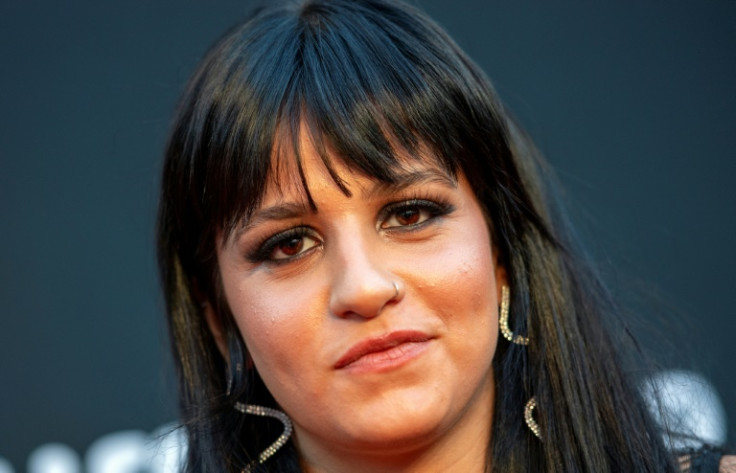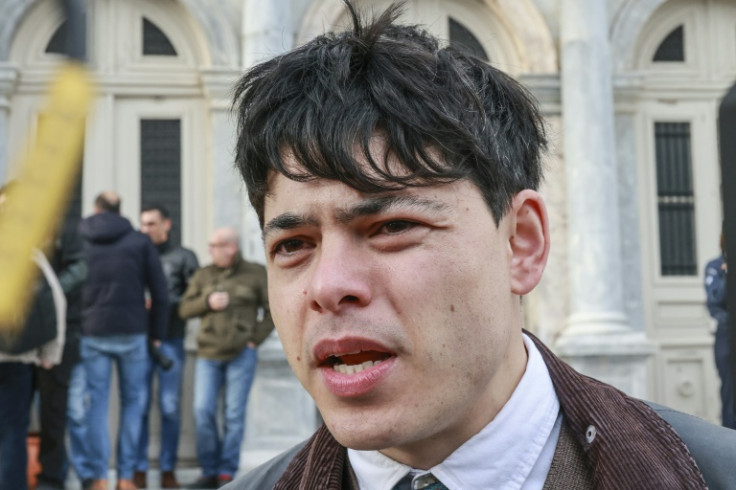Long-delayed Trial Of Migrant Rescuers Resumes In Greece

A trial in Greece of 24 migrant rescue workers accused of espionage, including Syrian swimmer Sarah Mardini who inspired a Netflix film, resumed Tuesday after more than a year as leading rights groups slammed the case as a masquerade.
The trial began in November 2021 but was swiftly adjourned. The suspects are also being probed for human trafficking, money laundering, fraud and the unlawful use of radio frequencies.
Branded as "the largest case of criminalisation of solidarity in Europe," in a European Parliament report, the trial was adjourned till Friday as one of the accused did not turn up in court and nor his lawyer.
Mardini, who has lived in exile in Germany since 2015, was arrested in 2018 while volunteering for a Lesbos-based search and rescue organisation, where they assisted people in distress at sea.
"I was arrested because I was handing over water and blankets and translating for the refugees arriving every night on the shoreline," she had said in a TED interview.
Rights monitors lambasted the slow proceedings and said the case was politically motivated.
Wies de Graeve from Amnesty International, who is an observer at the trial, said the delay was a ploy to prevent NGOs involved in rescue operations from working in Greece.
According to Amnesty, the accused face up to 25 years in prison if convicted.
"The charges are based on a Greek police report that contains blatant factual errors, including claims that some of the accused participated in rescue missions on multiple dates when they were not in Greece," Human Rights Watch said.
Pieter Wittenberg, a Dutch man among the accused, said the charges of spying and money laundering would not hold up, adding that the case was politically motivated.
Mardini was not present in court as the Greek authorities did not permit her to return, her lawyer Zacharias Kesses said.
Mardini fled Syria in 2015 during the civil war with her sister, Olympic swimmer Yusra Mardini.
She spent more than three months in jail in Lesbos following her arrest and was released after her attorneys raised 5,000 euros ($5,370) in bond.
The case was initially set to go ahead in 2021 but was postponed over procedural issues.
The Mardini sisters are the main characters of "The Swimmers", a Netflix film based on their story.
Sean Binder, a co-accused with Mardini and a German of Irish origin, said on Tuesday that "the lawyers have given irrefutable reasons why the way this trial has gone... is unacceptable".
Irish MEP Grace O'Sullivan said she hoped the judge would "drop these baseless charges".
Some 50 humanitarian workers are currently facing prosecution in Greece, following a trend in Italy which has also criminalised the provision of aid to migrants.
Despite in-depth investigations by media and NGOs, alongside abundant testimony from alleged victims, Greek authorities have consistently denied pushing back people trying to land on its shores.
Greek officials have meanwhile kept up verbal attacks on asylum support groups.
Greece's conservative government, elected in 2019, has vowed to make the country "less attractive" to migrants.
Part of that strategy involves extending an existing 40-kilometre (25-mile) wall on the Turkish border in the Evros region by 80 kilometres.
Tens of thousands of people fleeing Africa and the Middle East seek to enter Greece, Italy and Spain in hope of better lives in the European Union.

© Copyright AFP 2024. All rights reserved.











